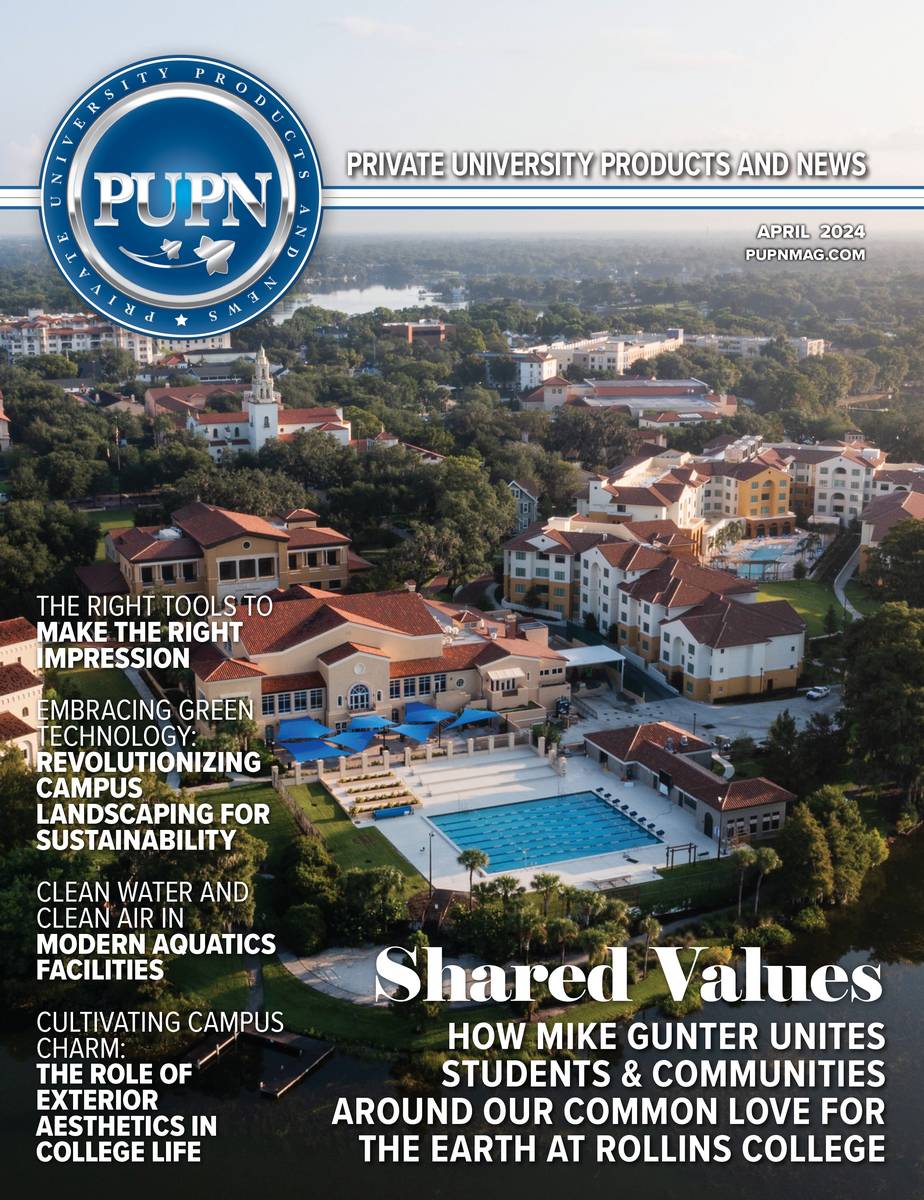Expansion through Grant Funding
According to Mao, one grant really propelled Tougaloo’s development as a research institution: in 2007, the NIH awarded a Research Infrastructure in Minority Institutions (RIMI) grant to Tougaloo’s Natural Science Division, with Mao as the Principle Investigator (PI). This three year, 3.4 million dollar grant funded a new genomics center on campus as well as the purchase of micro-array and RTPCR machines to facilitate gene research. The RIMI grant additionally aimed to stimulate faculty to pursue biomedical research; Mao was also the PI for diabetes research within the overall grant.
Other grants have been instrumental in helping Tougaloo expand student and faculty research opportunities. A National Sciences Foundation grant, HBCU-UP, was awarded around the time Mao was hired in 2001, providing opportunities for faculty members to research and to mentor students. After naming several other high-profile grants that have been awarded to Tougaloo and its Natural Science Division, Mao remarks, “We leverage a lot of federal and private money to strengthen our science program on campus.”
Undergraduate Research
This strong science program benefits Tougaloo students, who have a variety of opportunities to participate in undergraduate research on campus. The Jackson Heart Study, a longitudinal study of African American hypertension and cardiovascular disease funded by the NIH, offers one example. Wendy White, Principal Investigator of the Jackson Heart Study (JHS) Undergraduate Training and Education Center at Tougaloo College, says that Mao has been very supportive of JHS efforts, serving as research mentor for at least two JHS students every year. While the JHS has several centers, Tougaloo’s is unique because of the undergraduate training center involved. In her work with JHS students, Mao has earned a reputation for both toughness and caring. White says that Mao is very committed to making sure that the students have the experience and training they will need when they graduate.
White recalls that Mao was the first research mentor at Tougaloo who arranged for students to engage in international research; she selected JHS scholars to travel to China to engage in research there. White reports that the two students who participated in that research trip are both now physicians. One is an interventional cardiologist; the other earned both MD and PhD degrees and is now teaching at Howard.
Tougaloo students may also participate in two annual research symposiums, one in conjunction with Mississippi College each spring, and one organized within Tougaloo’s science division each fall. Santanu Banarjee, Professor of Physics and Chair of the Council for Undergraduate Research at Tougaloo, reports that they have the strongest participation from Biology in both symposiums, and he credits Mao with this high level of student participation.
Student Results
Because students in the Natural Science Division acquire a variety of hands-on techniques and knowledge on this small campus, Tougaloo—despite its small size—is recognized for producing well-trained students who pursue advanced degrees and careers in a range of STEM fields. The statistics are impressive: upon matriculation, more than half of Tougaloo’s students go on to graduate or professional school. Almost half of the African American physicians and dentists in Mississippi earned their degrees at Tougaloo, and the college ranks nationally in the top 25 colleges whose graduates earn PhD degrees in Science and Engineering.
Tougaloo alum Dr. Dexter Whitley, Associate Attorney for Fish and Richardson in Atlanta, has certainly followed that trajectory, and he says that Mao was instrumental in every aspect of his academic career. After transferring to Tougaloo, Whitley remembers Mao immediately becoming a mentor for him; he says that her mentorship continues to the present day. While Whitley was a student in Mao’s Spring 2003 microbiology course, she invited him to do research in her lab. Due to this experience, Whitley ended up majoring in biology and earning a PhD.
Now working as a patent attorney, Whitley focuses mainly on pharmaceutical patents, and he uses a lot of his science training in that work—particularly, he says, the patience and preparation learned under Mao’s tutelage. Whitley appreciates the depth of Mao’s care for her students, even if she expresses that care in strictness at times. As Whitley says, “She knows that for her students to be successful, there are going to be next steps that will require an MD or PhD, and she wants to make sure they’re prepared and stand on equal footing—and I experienced that.”
Mao’s mentorship extends beyond the undergraduate years for her students. Whitley says that Mao always makes time to talk to him when he needs guidance. He called her while he was completing his postdoctoral research and wasn’t sure of his next step. She invited him to apply for an open instructor position at Tougaloo, so he actually went back to teach at his alma mater for two years. Whitley says, “That’s the second time she pulled me in a good direction when I was directionless.”
As Mao has opened up research opportunities for Tougaloo faculty and students alike, she has earned the personal and professional respect of her colleagues. Banarjee notes that they share a strong work ethic—along with the desire to impart that work ethic to their pupils. As Banarjee explains, her motivation is always to produce the best outcome for her students.
A Focus on Community Needs
Mao and the other faculty members continue to pursue research interests that connect to Tougaloo’s broader community, building on the foundation established with the creation of the genomics facility. As a professor working in an HBCU, she knows that 99% of the student population is African American and thus more prone to experiencing chronic illness in the American health system.
Observing that students are naturally highly impacted when they or their loved ones are ill, Mao says that the prevalence of chronic illness in the African American population motivated faculty members both to learn more about these illnesses and to get students into the lab to learn about them, too. In teaching students the research process, Mao hopes that they will become future leaders in combating chronic illness such as diabetes, which is a public health issue disproportionately affecting African Americans.
As Mao points out, these diseases are multifactorial; they include lifestyle choices, such as eating habits, but they also result from genetic and socioeconomic factors. Since African American people have twice the prevalence of diabetes as their Caucasian counterparts, Mao knows that students must be educated in order to be able to facilitate a change in health outcomes for their friends, family members, and communities.
Mao notes that Southern states are always at the bottom of rankings for heart disease, diabetes, and now, Covid-19, and African American Southerners fare even worse in health outcomes. In a further exacerbation of these disparities, many rural Mississippians don’t have easy access to medical services. She hopes that her students can educate their communities about diet and exercise while also changing health systems so that everyone has equal access to physicians and insurance.
Personal Research Focus
Although she has now been in the United States for 30 years, Mao was a physician in China specializing in infectious diseases. In her current research, Mao studies lipids in pre-diabetic, diabetic, and normal populations. As she explains, people with type 2 diabetes still produce insulin, but their bodies do not use it properly. Furthermore, obese patients are prone to diabetes because the metabolic pathway for lipids is impaired.
Mao’s research looks at identifying the many thousands of lipids—organized in major groups such as triglycerides, LDL, HDL, and cholesterol—examining the relationship between genes and lipids. People with higher levels of bad lipids are more prone to developing diabetes. In her research, Mao has found that one gene that allows higher levels of these bad lipids appears more often in the African American population. As a result, people with this genetic contribution need to be even more scrupulous about adhering to healthy lifestyle and dietary changes. These findings mean that, in controlling the lipids, people may be able to control obesity. Since obesity is a contributing factor in many chronic diseases, the application of this research could help to limit their spread.
Administrative Work
For the past four years, Mao has served in Tougaloo’s administration as Dean of Natural Science. As dean, her aim is to translate the skills and expertise needed to work in the genomics facility into classroom settings, with the goal that students see themselves developing real world competencies. Tougaloo’s Biology department is among the largest on campus, so Mao’s role, according to Banarjee, is “big—defining.” Banarjee notes that Mao is quite humble and didn’t seek out an administrative role. When needed, however, she stepped up to serve the division and institution, motivated not by fame or finances, but by a sense of responsibility.
Mao continues to envision ways to use the genomics facility to expand research explorations at Tougaloo. In addition to examining the cancer disparities between African American and Caucasian men, she says that faculty members are looking at deer and bean beetle microbiomes. As more faculty join the division, each has their own area of expertise, but they can all use the same genomics facility in their research and teaching.
In championing research opportunities across campus, Jinghe Mao presents an incredibly successful model for other colleges to emulate—one that simultaneously supports faculty in exploring their areas of interest, provides students the experience they need to be successful in earning advanced degrees and in their future careers, and develops research findings that can serve the wider community.










